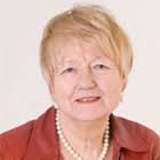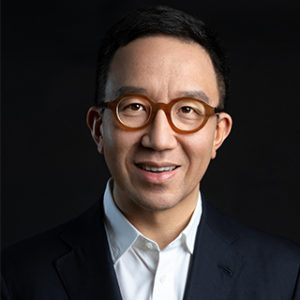Once again we are playing catch up with Coronavirus, argue Ilona Kickbusch and Gabriel Leung
The current novel coronavirus 2019-nCoV outbreak shows that neither our pandemic preparedness nor our response are working as well as they should. Preparedness systems are always designed to deal with the immediate past pandemic, and never the next. The vicious cycle of never being good enough costs lives and economic stability. We just came out of a cycle of the World Health Organisation (WHO) under calling Ebola and over calling the 2009 swine flu outbreak. Now we are once again playing catch up with 2019-nCoV.
The existing instruments are blunt. Countries and businesses do what seems politically expedient despite WHO’s advice and traditional and social media are over reacting. This highlights that we need new governance instruments beyond the International Health Regulations and new financing instruments that support affected countries. We want to open the debate with some controversial suggestions.
First and foremost, the role of the WHO needs to be strengthened—financially and politically. Revitalising the International Health Regulations was a breakthrough of global health diplomacy in 2005. Today in a totally new political and economic context it is insufficient. Not only has declaring a Public Health Emergency of International Concern (PHEIC) lost its meaning and power, the fact that there are no independent observers during an outbreak, assessing what is going on in countries, opens the door for speculation, political gamesmanship, and misinformation.
Declaring a PHEIC, but categorically ruling out travel advisories on the grounds of solidarity and efficacy, is almost a direct contradiction of meaning. In any case, countries do what they want. It is not inherent in WHO’s DNA to intervene in countries. SARS was the last time WHO issued a travel advisory against certain countries. Clearly countries are not interested in giving WHO this power. So at a minimum we need the WHO to have the power to send independent observers to countries to make an independent assessment—beyond what the IHR propose. Member states must adopt a mechanism like the election observers that the OSCE Office for Democratic Institutions and Human Rights (ODIHR) fields to participating states. They would report not only on the public health response, but also on other matters like human rights compliance in all countries.
Second, the mechanism of declaring a PHEIC needs urgent revisiting. In the last few weeks the constant call for WHO to declare a PHEIC has not been helpful. Dr Tedros, the Director-General of the WHO has stated “The IHR is now PHEIC or non PHEIC, either green or red. I think we now we need to revise that.” (tweet by @kakape 29.01.2010) He, like some others, is thinking about a traffic light system. But even that does not capture the complexity that we are experiencing now during the 2019-nCoV outbreak, because an outbreak is never just a danger to health.
Two issues are critical: scale and connectivity. The 2019-nCoV outbreak is not only happening in the largest country in the world—18.7% of the global population—but in the world’s second largest economy. Kristalina Georgieva, head of the IMF has underlined that China has been a major growth engine for the world economy, and its economic health bears global significance. If the world does not help China now, everyone will suffer the economic consequences. Therefore, economic organisations—both old and new—must be much more engaged in preparedness and monitoring of outbreaks.
Third, transparency is paramount, but there clearly needs to be a set of rules to which both traditional and social media need to adhere to in such critical situations. The misinformation and fear mongering around the 2019-nCoV outbreak has reached extraordinary heights. The key aim is to sow mistrust: bots attack the WHO and respected journalists, anti-vaxx supporters are given platforms to spread conspiracy theories, and racist commentary abounds. We need effective media watchdogs to monitor how disease outbreaks are reported. In addition to reaching out to social media platforms, WHO could reach out to existing watchdog groups exploring cooperation. They could also study whether information has been held back and if critical informers or journalists have been silenced.
Fourth, the mechanisms that exist to provide rapid financial help are insufficient and do not have activation criteria that fit complex situations such as the present one. The mechanisms were built in the wake of Ebola, an outbreak in some of the poorest countries with a very high death rate. The Pandemic Emergency Facility (PEF), a financing mechanism housed at the World Bank is focused on the world’s poorest countries. If 2019-nCoV spreads to Africa then this would be activated, but actually it should be used to avoid 2019-nCoV spreading and triggering that activation criteria. The outbreak size (number of cases or deaths), spread (number of countries affected), and growth (over a period of time) do not come into effect. The IMF and World Bank, as well as the G20 need to act decisively to change this.
Fifth, WHO recommendations mean nothing if there are no sanctions to follow—either political or economic. China has been criticised for its “undemocratic” response to 2019-nCoV, but we now witness the US response one day after a PHEIC was declared, discrediting everything the WHO Director-General had said. The US has closed its borders and the US Secretary of Commerce commented that the outbreak in China would “boost American jobs.” Even during the hottest phase of the Cold War, the US and Soviet Union worked together on health. But it seems that “America First” now also applies to outbreak control. There must be a political mechanism to call out non-compliance and more regular analysis of the politics of epidemics.
Sixth, as in other fields of policy the toughest stick to use is money. There need to be sanctions for countries that do not cooperate. William Nordhaus has proposed such a mechanism in the climate arena. He proposes a club model which could be explored for outbreak preparedness and control. This model can induce a large stable coalition with high levels of preparedness and compliance to impose sanctions—meaning trade penalties—against non-participants. The political leaders of the G20 could embark on such a forward-looking approach in cooperation with the United Nations. The European Union as the world’s largest multinational trading bloc could make history by making a bold political choice and taking the lead.
 Ilona Kickbusch is director of Global Health Centre, Graduate Institute for International and Development Studies, Geneva, Switzerland.
Ilona Kickbusch is director of Global Health Centre, Graduate Institute for International and Development Studies, Geneva, Switzerland.
Competing interests: None declared
 Gabriel M Leung is dean of medicine at the University of Hong Kong, Hong Kong SAR, China.
Gabriel M Leung is dean of medicine at the University of Hong Kong, Hong Kong SAR, China.
Competing interests: None declared
